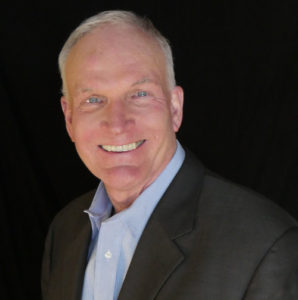Transform Your Empathic Sensitivity
Sara was empathically sensitive. She could feel the emotions of everyone around her and even the emotions of her ancestors. Her problem was that she thought everything she felt was her own. She would feel the infidelity of a neighbor and think her husband was unfaithful. She would walk into a store and feel the anxiety of a sales person and think that she was anxious. She would feel the anger of her child and become angry.
If Sara's life resonates with you, you are in the right place. This website will give you the information and tools to turn what your might feel is a curse into an incredible blessing.
Two Courses To Transform Your Life
Click on a box to learn more.

The Three Principles of Empathic Transformation
PRINCIPLE 1
Make the Mind Shift
You are empathic. You feel other people's emotions as if they are your own. You might even feel their physical pain or sense their thoughts. Your intelligence and competency as a highly sensitive person have been questioned. You have been judged and found wanting. You have been called irrational, overly sensitive, a drama queen, or worse. You have been told to keep a stiff upper lip.
Your empathic reality is so different from others that you sometimes think you must come from a different universe.
All of this has been hurtful and depressing.
Those judgments are wrong. Your empathic sensitivity is a gift, not a curse. The problem is with culture, not with you.

In the history of Western philosophy, religion, and psychology, emotions have been judged as unreliable, dangerous, and even evil when compared to rational thought. We give much attention to the words people speak and almost no attention to their emotional experiences.
The Greek philosopher Plato started the idea that emotions are irrational. He argued intellect or reasoning should take precedence over emotional reactivity. It’s a belief that has permeated Western thought for millennia—emotion gets in the way of reason.
The early Christian church amplified this belief of reason over emotion through the philosophy of Neoplatonism. Augustine of Hippo (St. Augustine), the foremost theologian for the Church in the fifth century, incorporated Neoplatonism in his writings, mixing the Bible with ancient Greek philosophy. Neoplatonism found another adherent in one of the founding philosophers of the Enlightenment, René Descartes. Descartes is famous for his assertion: “I think, therefore I am” in his Discourse on Method. Like those before him, Descartes rejected the importance of emotions, privileging reason over them.
The emotion-versus-reason conflict persists into modern culture. Culture teaches us from early on that emotions interfere with clear, logical, reality-based thinking. Unchecked, emotions distort perception and memory. Beyond that, emotions may get us into trouble if they are permitted to rule our brain. Emotions need to be restrained, moderated, and be brought under control. In short, in contrast with rationality, emotions are dangerous experiences to be avoided whenever possible.
These ideas turn out to be myths. In the past 20 years, neuroscientists and neuropsychologists have discovered a fundamental truth:
Humans are 98% emotional and 2% rational.

Three thousand years of philosophy on human nature is unsupported by science.
Your empathic sensitivity makes you more gifted than most other humans. When you embrace this mind shift—that humans are emotional not rational beings—your life will transform in wondrous ways.
Humans are 98% emotional and 2% rational.
PRINCIPLE 2
Become Emotionally Fluent
You must harness your empathic sensitivity by becoming emotionally competent. Emotional fluency occurs when you can:
- Distinguish your emotions from other people's emotions.
- Have a vocabulary of emotions that are associated with specific feelings
- Label your emotional experience in the moment.
- Reflect another person's emotions to that person.
- Do all of this naturally without effort
At a more advanced level, you are emotionally fluent when you
- Take responsibility only for your emotions
- Give responsibility for other people's emotions back to them
- Do not try to fix people
- Do not try to please others
- Clear ancestral patterns and triggers
- Refuse to take on other people's pain
- Cultivate compassion and humility
You become fluent in all of these skills by learning how to listen in a new, special way.
Take responsibility only for your emotions.
PRINCIPLE 3
Master the Skills of Listening to Emotions
You learned to listen to words. In school, you learned to read words. Words became the most important form of communication. The problem with this is that words account for 7% of the communication. Non-verbal information is 93% of communication.
As a highly sensitive person, you are attuned to that 93%. You are able to read emotional data fields from others.
Your confusion occurs because you have not learned how to make sense of the data. You experience overwhelm.
Fortunately, when you learn to listen to emotions, not words, the overwhelm goes away. You begin to turn your empathic sensitivity into a gift.
Listening to emotions takes practice. There are three basic steps:
- Ignore the words
- Guess at the emotions
- Reflect back the emotions with a simple "You" statement.

Ignoring the words seems counter-intuitive. After all, words are symbols that express and communicate meaning. Why do we ignore them?
First, if you are listening to the words, you cannot listen for the emotions. Our brains have the capacity to focus on one task at a time. So, when we consciously choose to ignore the words, we are freeing up our brain processing power to focus on the emotions.
Second, if you are listening to the words, you cannot discern whose emotions you are experiencing. Your emotions are tangled up in the emotions of the other person. Ignoring the words allows you to focus on what is important: Your emotions and the other person's emotions.
Third, angry people say nasty, mean things. If you listen to the words, you are likely to become emotionally triggered. You can be sucked into the conflict whirlpool. By ignoring the words and focusing on the emotions, you are insulating yourself from the upset. The words lose their bite because you don’t have time to think about the insult.
If you are listening to the words, you cannot listen for the emotions.
The second step, guessing at the emotions, is second nature to you. Because of your empathic sensitivity, you easily see the emotions of others. Many people without the gift struggle with this step. You will not. As you shift your focus to emotions, your discernment of what belongs to you and what belongs to another grows.
The third step, reflecting the emotions with a "You" statement is simple. For example:
“You are angry.”
“You are frustrated.”
“You are anxious.”
Here is an example of basic emotional reflection between two friends:
Speaker (S): “My husband never listens to me. He just comes home and turns on the television.”
Listener (L): “You are frustrated and feel disrespected.”
S: “Yeah! And anytime I ask him how he is feeling, he completely shuts down.”
L: “You are frustrated and sad because he will not connect with you.”
S: “It can be so lonely at times. It’s like we are living in two universes.”
L: “You are lonely and sad and you feel unloved.”
S: “Yeah, that’s it exactly. Thanks for listening to me.” Head nods, shoulders drop, and she sighs in relaxation.
L: “You’re welcome. Anytime.”
Conclusion
If you've read this far, you are ready to dive into learning. Browse around the site. The blog will have articles expanding on the basic ideas and YouTube videos. The Courses link will connect you to courses we have prepared for you to master these skills. Check back frequently as we will be adding new information and resources frequently.
Like to Join Our Empowered Empaths?
Let's have a joyous conversation that starts today.
- We don't spam.
- We don't sell your email.
- If you don't open our emails over a period of time, we'll gracefully unsubscribe you.
Hi,
I'm Doug Noll
In the last 20 years, I have devoted myself to understanding the conflicts that arise when people lack emotional competencies. I have developed a body of knowledge and set of skills based on neuroscience. Join me in this transformational work as we learn to listen each other into existence.

